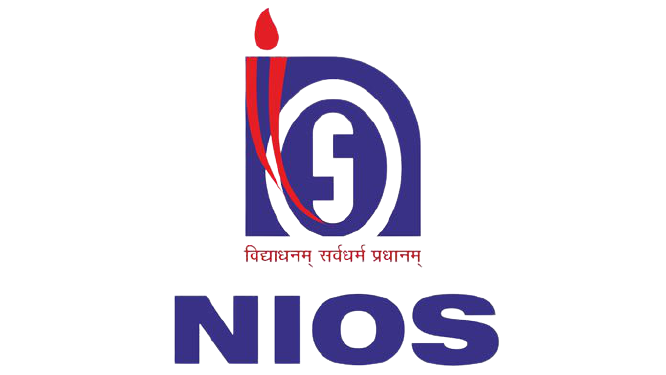DPT
DPT
Physiotherapy course detail:-
Physiotherapy is an exciting and impactful field dedicated to improving people’s lives. But, if you’re looking to pursue a career in this area, you may be wondering: what exactly is a physiotherapy course?
In simple terms, a physiotherapy course is a program of study that teaches you everything you need to know to become a physiotherapist. It equips you with both the theoretical knowledge and practical skills needed to help patients improve their movement and manage their pain.
The course starts with the basics, teaching you about human anatomy (how the body is structured) and physiology (how the body works). You’ll also learn about the different types of injuries and health conditions that can affect a person’s ability to move.
As you progress through the course, you’ll start to learn about the different treatment methods used in physiotherapy. This includes physical exercises, manual therapy techniques (where you use your hands to treat patients), and even how to use special equipment to aid in a patient’s recovery.
One of the most important parts of a physiotherapy course is the practical training. This allows you to put your knowledge into action, treating patients under the guidance of experienced physiotherapists. This hands-on experience is invaluable, preparing you for the realities of working in the field.
It’s important to note that physiotherapy courses can be taken at different levels. There are undergraduate degrees for those starting out, postgraduate courses for physiotherapists looking to specialize in a certain area, and short courses for continuing professional development.
Why Study Physiotherapy Course?
Studying Physiotherapy could be an excellent choice for many reasons, mainly if you’re interested in a healthcare career that allows you to help people improve their quality of life. Here are some reasons why you might consider studying a Physiotherapy course:
Helping People: One of the most rewarding aspects of physiotherapy is the ability to help people. Whether it’s helping someone recover from an injury, managing a long-term health condition, or improving physical capabilities, you’ll make a significant impact on people’s lives.
Wide Range of Career Opportunities: As a physiotherapist, you can work in a variety of settings, including hospitals, private practices, sports clubs, schools, and rehabilitation centers. You could also specialize in areas such as pediatrics, sports medicine, geriatrics, orthopedics, neurology, and more.
High Demand: With an aging population and increasing awareness of the importance of physical wellbeing, physiotherapists are in high demand. This demand is expected to continue growing, offering good job prospects.
Practical, Hands-on Work: Physiotherapy is a very active, hands-on career. It’s a great choice if you prefer a job that isn’t solely desk-based.
Continual Learning: The field of physiotherapy is always evolving with new research and techniques. As a physiotherapist, you’ll have the opportunity to continue learning and updating your skills throughout your career.
Flexibility: Many physiotherapists have the flexibility to set their schedules or choose their work settings, making it a good career choice for those seeking a work-life balance.
Competitive Salary: While the salary can vary depending on the specific job role and location, physiotherapy typicallyoffers competitive compensation
Physiotherapy Course Admission Process
The admission process for physiotherapy courses may vary from one institution to another, and also depending on the level of the course. However, there are some common steps that most institutions follow. Here is a general outline:
- Check Eligibility Criteria:As we discussed earlier, each course level has its own set of eligibility criteria. So, the first step is to confirm that you meet these prerequisites.
- Application Submission: Most institutions will require you to fill out an application form. This form may require details like your personal information, educational background, and sometimes a statement of purpose explaining why you’re interested in the course.
- Entrance Exam: Some institutions, particularly for Bachelor’s and Master’s degrees, may require you to sit for an entrance exam. The exam often tests your knowledge of key science subjects (Physics, Chemistry, Biology) and aptitude for the field.
- Interview or Counselling:After the entrance exam, there may be an interview or counselling process. This is to assess your interest and suitability for the course.
- Final Selection: Based on your application, entrance exam scores, and interview, the institution will make their final decision. If you’re selected, they’ll send you an offer of admission, which you can accept to secure your place in the course.
- Fees Payment and Enrollment: The final step is to pay the course fees and enroll in the program. At this stage, you may need to submit additional documents, like proof of your previous education.
Remember, these are general steps and the process may vary from one institution to another. It’s always best to check the specific admission process for the course and the institution that you’re interested in. Make sure to keep an eye on application deadlines and other important dates to ensure you don’t miss any opportunities.
Physiotherapy Course Syllabus
Anatomy | Physiology | Pathology |
Microbiology | Pharmacology | Orthopedics |
General Medicine | General Surgery | Neurology |
Clinical Biochemistry | Basic Nursing | Ethics in Physiotherapy |
Physiotherapy Course Scope
There is a tremendous scope of physiotherapy courses in India as well as abroad. This interesting field is challenging and requires a defined skill set which makes it a highly demanding profession. If you are interested in patient care and treatments, a physiotherapy technician course can be a great career option for you. This challenging profession is expanding and opening doors to several career opportunities both in India and abroad.
After completing this course, you can work in different healthcare settings such as hospitals, clinics, or other public health settings. You will work in collaboration with different teams to cure patients with appropriate treatments.
Jobs after Physiotherapy Course
Once you’ve completed your physiotherapy course, a variety of job opportunities await. Physiotherapy is a versatile field with career paths in various sectors, including healthcare, sports, research, and education. Here’s a look at some of the roles you might consider:
- Clinical Physiotherapist:This is the most common role for physiotherapy graduates. As a clinical physiotherapist, you’ll work directly with patients in hospitals, clinics, rehabilitation centers, or private practices, treating a wide range of conditions and helping to improve patients’ quality of life.
- Sports Physiotherapist: If you’re interested in sports, you might consider becoming a sports physiotherapist. In this role, you’ll work with athletes to prevent and treat injuries, improve performance, and assist in recovery processes.
- Pediatric Physiotherapist:Specializing in pediatrics allows you to work with children and adolescents, helping them overcome movement difficulties associated with growth or conditions like cerebral palsy, Down syndrome, or developmental delays.
- Geriatric Physiotherapist: As a geriatric physiotherapist, you’ll work with older adults to manage conditions related to aging, like arthritis, osteoporosis, or Alzheimer’s disease.
- Orthopedic Physiotherapist:Orthopedic physiotherapists specialize in treating musculoskeletal injuries, like fractures, sprains, or post-surgical rehabilitation.
- Neurological Physiotherapist: If you’re interested in the nervous system, you might consider a career as a neurological physiotherapist, helping patients with neurological disorders such as stroke, spinal cord injuries, or Parkinson’s disease.
- Academician or Researcher: If you love learning and teaching, you could use your physiotherapy knowledge to educate future physiotherapists or conduct research to advance the field.
- Rehabilitation Specialist: In this role, you’ll work with patients recovering from severe injuries or surgeries, or managing chronic illnesses, helping them regain their mobility and independence.
- Self-employed/ Private Practitioner:With experience, you could also consider opening your own physiotherapy clinic, allowing you the freedom to be your own boss
Physiotherapy Salary
Salaries in the field of physiotherapy can vary widely depending on the specific job role, years of experience, the region of employment, and level of specialization. Here’s a rough guide to what you might expect to earn in some common physiotherapy roles in India:
Job Role | Salary Range (INR per annum) |
Clinical Physiotherapist | INR 2,00,000 – INR 7,00,000 |
Sports Physiotherapist | INR 3,00,000 – INR 10,00,000 |
Pediatric Physiotherapist | INR 2,50,000 – INR 8,00,000 |
Geriatric Physiotherapist | INR 2,50,000 – INR 8,00,000 |
Orthopedic Physiotherapist | INR 3,00,000 – INR 10,00,000 |
Neurological Physiotherapist | INR 3,00,000 – INR 10,00,000 |
Academician or Researcher | INR 3,00,000 – INR 12,00,000 |
Rehabilitation Specialist | INR 3,00,000 – INR 10,00,000 |
Self-employed/ Private Practitioner | Varies widely based on clientele and location |
Please note that these are average estimates and can vary based on several factors. As with any profession, salaries typically increase with experience, additional certifications, and specializations









 Users Today : 3
Users Today : 3 Users Yesterday : 7
Users Yesterday : 7 Views This Month : 368
Views This Month : 368 Total views : 22256
Total views : 22256 Who's Online : 0
Who's Online : 0